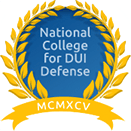Union County, NJ, Domestic Violence Attorneys
Are you facing domestic violence charges in Union County, New Jersey? Domestic violence cases can involve a variety of criminal offenses and violations against those under the protection of the New Jersey Prevention of Domestic Violence Act. Under the Act, victims can seek relief from the court, which could have serious repercussions for those accused of domestic violence.
Depending on the circumstances, a New Jersey court could issue an order that affects where you can live, whom you can contact, whether you can see your children, and many other aspects of your life. When the stakes are this high, working with a knowledgeable criminal defense lawyer who can protect your rights is essential.
At the Law Offices of Jonathan F. Marshall, our Union County defense lawyers have decades of experience handling many different domestic violence cases. Many of our attorneys previously served as prosecutors, so we are deeply familiar with the courts and state law. Contact our firm as soon as possible to discuss your case details in a free review session.
What Are the New Jersey Domestic Violence Laws?
New Jersey has codified its domestic violence laws in New Jersey Statutes § 2C:25-17, also known as the Prevention of Domestic Violence Act (PDVA). The PDVA acknowledges that distinct domestic violence laws are necessary even though many existing criminal laws already apply to domestic violence incidents. Victims historically have had difficulty accessing protective services from the judicial system in emergency domestic violence scenarios.
Although many acts of domestic violence are also criminal offenses under other statutes, the PDVA provides domestic violence victims with opportunities to seek relief through the civil court system. For instance, domestic violence victims can file emergency restraining orders in civil courts under the PDVA. The PDVA also tells police officers what to do when responding to domestic violence calls, including arresting accused offenders when there is probable cause of domestic violence.
Additionally, the PDVA specifies the importance of the relationship between an alleged domestic violence offender and a victim. Under New Jersey law, domestic violence only occurs when someone engages in the actual or threatened abuse of an individual with whom they have a current or former intimate relationship.
What Is Considered an Incident of Domestic Violence Under the New Jersey Prevention of Domestic Violence Act?
Under New Jersey Statutes § 2C:25-19, any of the following crimes committed against someone protected by New Jersey’s Prevention of Domestic Violence Act is considered domestic violence:
- Homicide
- Assault
- Terroristic threats
- Kidnapping
- Criminal restraint
- False imprisonment
- Sexual assault
- Criminal sexual contact
- Lewdness
- Criminal mischief
- Burglary
- Criminal trespass
- Harassment
- Stalking
- Criminal coercion
- Robbery
- Cyber-harassment
- Restraining order violations
- Other crimes involving the risk of serious injury or death
Who Can Make a Domestic Violence Complaint in Union County, NJ?
To file a domestic violence complaint in Union County, NJ, an individual must:
- Be older than 18 or an emancipated minor (someone under 18 who has been married, entered military service, had a child, is pregnant, or has been declared emancipated by a court or administrative agency) and experienced domestic violence at the hands of a spouse, ex-spouse, current or former household member, current or former romantic partner, or a person with whom they have or expect to have a child in common.
- Have experienced domestic violence at the hands of a person with whom they have or expect to have a child in common, regardless of age.
- Have experienced domestic violence at the hands of a person with whom they have a current or former romantic relationship, regardless of age.
Any individual who meets the criteria has the right to file a domestic violence complaint with the Family Division of the Superior Court in their county of residence. In their complaint, a domestic violence victim may seek emergency relief through a temporary restraining order (TRO) against their alleged abuser.
What Are Common Domestic Violence Charges in New Jersey?
Here are some common types of criminal offenses that could lead to domestic violence charges in Union County, New Jersey.
Homicide
Criminal homicide occurs when someone purposely, knowingly, or recklessly causes someone else’s death. Murder or manslaughter by an automobile or other vessel also counts as criminal homicide.
Simple Assault
Simple assault occurs when someone purposely, knowingly, or recklessly causes or tries to cause bodily injury to someone else. Simple assault can also happen when someone negligently injures another person with a deadly weapon or attempts to frighten another person with threats of serious injury.
Aggravated Assault
Aggravated assault occurs when someone purposely or knowingly causes or attempts to cause serious bodily injury to another person. Aggravated assault might also include recklessly causing bodily injury with a deadly weapon and other behaviors suggesting an “extreme indifference to the value of human life.”
Terroristic Threats
Terroristic threats occur when someone threatens to kill or commit a violent crime against another person to frighten them with the imminent fear of death or cause them to flee a building.
Kidnapping
Kidnapping occurs when someone unlawfully removes another person from their home or business and confines them as a hostage, for a reward or ransom, or for the purpose of committing any other unlawful act.
Criminal Restraint
Criminal restraint occurs when someone unlawfully restrains another person in a way that exposes them to the risk of serious bodily injury or holds them in a condition of involuntary servitude.
False Imprisonment
False imprisonment occurs when someone knowingly and unlawfully restrains someone else in a way that interferes with their freedom.
Sexual Assault
Sexual assault occurs when someone sexually penetrates a victim who is younger than 13, a victim who is a relative between the ages of 13 and 16, or a victim who is physically or mentally incapacitated. Sexual assault also occurs when someone unlawfully penetrates another person without their consent while committing or attempting to commit a violent crime, armed with a weapon, or aided or abetted by another person.
Lewdness
Lewdness occurs when someone exposes their intimate body parts for arousal or sexual gratification under circumstances where they know or should know other nonconsenting persons might observe them.
Criminal Mischief
Criminal mischief occurs when someone knowingly, recklessly, or purposely damages someone else’s property.
Burglary
Burglary occurs when someone enters a secured or occupied structure without authorization, whether or not they harm others or take anything.
Criminal Trespass
Criminal trespass occurs when someone enters or secretly remains in a secured or occupied structure despite knowing they are not authorized to be there.
Harassment
Harassment occurs when someone contacts another person anonymously, at highly inconvenient times, using offensive language, or in any other manner that could likely cause annoyance or alarm. Harassment also occurs when someone repeatedly commits alarming or annoying acts or when someone subjects another person to offensive touching or threats thereof.
Stalking
Stalking occurs when someone repeatedly stays within visual or physical range of another person, either directly or indirectly, including through surveillance devices or contact with other individuals.
Criminal Coercion
Criminal coercion occurs when someone threatens to inflict bodily injury upon someone else, expose someone else’s secrets, or take or withhold some other action that will harm someone else’s health, safety, or reputation for the purposes of unlawfully restricting their freedom.
Robbery
Robbery occurs when someone inflicts bodily injury on, uses force against, or threatens another person for the purpose of putting them in fear during the commission of a theft.
Cyber-Harassment
Cyber-harassment occurs when someone threatens physical harm against another person, knowingly sends or requests obscene material to or about someone else, or threatens to commit any crime against another person or their property via online communication.
What Are the Penalties for Domestic Violence in Union County, NJ?
The penalties for domestic violence charges can vary considerably depending on whether the prosecution decides to press disorderly persons offense (misdemeanor) charges or indictable offenses (felony) charges. Possible penalties for a domestic violence conviction in Union County, New Jersey, could include the following:
- Disorderly Persons Offenses – Fines, probation, restraining orders, mandatory anger management classes, and up to six months of jail time
- Fourth-Degree Crimes – Up to 18 months in state prison
- Third-Degree Crimes – Three to five years in prison
- Second-Degree Crimes – Five to 10 years in prison
- First-Degree Crimes – 10 to 20 years in prison
Where Are Domestic Violence Cases Heard in Union County, NJ?
Indictable offense charges related to domestic violence, such as aggravated assault or terroristic threats, are tried in the Union County Superior Court in Elizabeth, NJ. Disorderly persons offenses are heard in any of the following municipal courts:
- Berkeley Heights Municipal Court
- Clark Municipal Court
- Cranford Municipal Court
- Elizabeth Municipal Court
- Fanwood Municipal Court
- Garwood Municipal Court
- Hillside Municipal Court
- Kenilworth Municipal Court
- Linden Municipal Court
- Mountainside Municipal Court
- New Providence Municipal Court
- Plainfield Municipal Court
- Rahway Municipal Court
- Roselle Municipal Court
- Roselle Park Municipal Court
- Scotch Plains Municipal Court
- Springfield Municipal Court
- Summit Municipal Court
- Union Township Municipal Court
- Westfield Municipal Court
- Winfield Municipal Court
Contact a Domestic Violence Defense Attorney in Union County, NJ
Are you facing criminal charges stemming from domestic violence? Then contact us today for a free consultation session with a domestic violence defense attorney. The Law Offices of Jonathan F. Marshall is conveniently located near the Elizabeth Municipal Court and the Union County Superior Court in Elizabeth, NJ.













